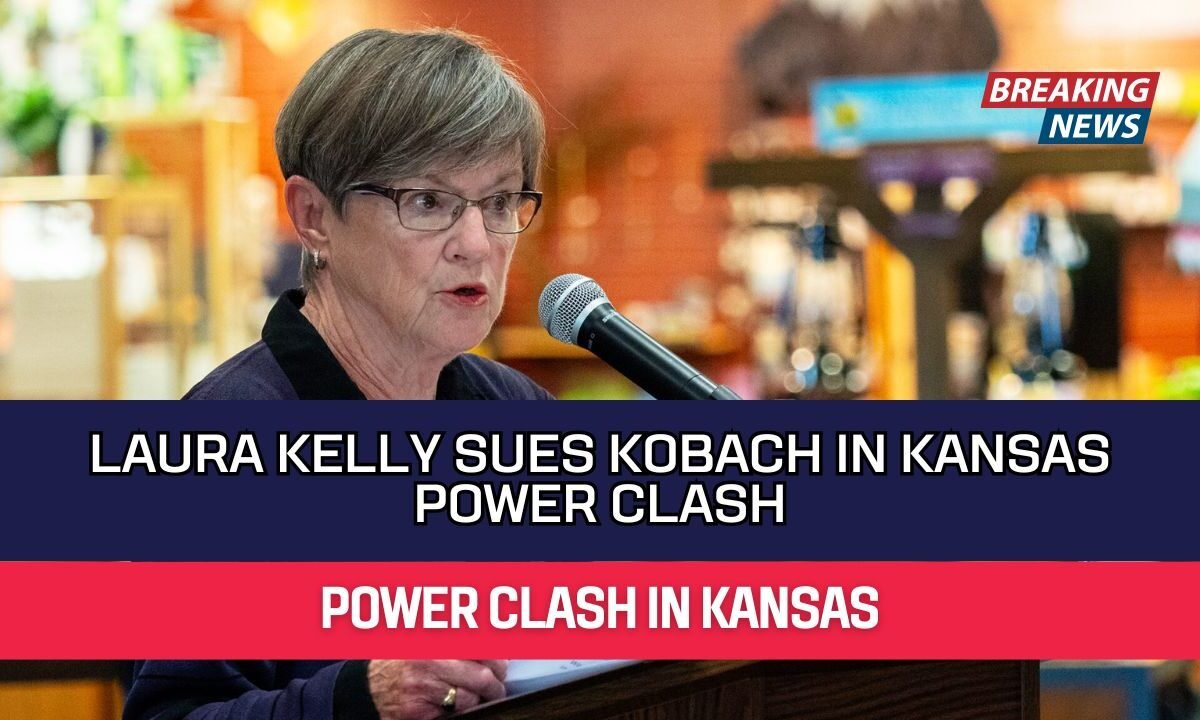In a surprising move, Governor Laura Kelly of Kansas stepped into a major legal battle with Attorney General Kris Kobach by filing a lawsuit directly with the Kansas Supreme Court.
She claims that Kobach is interfering with her constitutional powers as governor. This story shows how state politics can turn into a courtroom fight—and how the roles of governor and attorney general can clash in powerful ways.
Why Did Governor Laura Kelly File the Lawsuit?
Kelly’s View of the Problem
Governor Kelly argues that Attorney General Kobach has taken a position that he alone gets to decide how Kansas defends legal cases in federal and state courts. She says this ignores her role and power as governor. For example:
- She claims Kobach has failed to defend Kansans from what she calls “unlawful federal overreaches” by the administration of Donald Trump.
- She accused him of being partisan, acting more for his party than for the people of Kansas.
Kobach’s Response
Kobach pushed back by saying the law is clear about who speaks for Kansas in court—and that Governor Kelly’s lawsuit is just a political stunt. He suggested that if Kelly wants the job of attorney general, she should attend law school first.
What Does the Lawsuit Ask For?
Governor Kelly’s lawsuit requests that the state Supreme Court issue an order that would:
- Prevent the Attorney General’s office from interfering with the governor’s “supreme executive” power as head of the executive branch.
- Confirm that the Kansas Constitution gives the governor authority to act independently to defend the people.
Which Issues Are at the Heart of the Conflict?
Here are the key topics that triggered this feud:
| Issue | Kelly’s Position | Kobach’s Position |
|---|---|---|
| Representation of Kansas in court | Kelly says she must act when Kobach does not | Kobach says he alone legally represents Kansas |
| Federal funding for programs | Kelly intervened in lawsuits to protect funds | Kobach opposed some of those interventions |
| Role of Attorney General vs Governor | Kelly says her executive power was ignored | Kobach says his legal power is clear by law |
Key Examples of the Fight
- Kelly says Kobach refused to join two lawsuits she supported—one involving emergency food-aid funds from the U.S. Department of Agriculture and another about federal funding for health and safety programs.
- In one case, Kobach filed a lawsuit challenging Kelly’s decision to withhold personal data of SNAP recipients from the federal government. That lawsuit was thrown out by a judge.
- Kelly says because the attorney general did not act, she felt she had to step in for the citizens of Kansas.
Why This Matters for Kansas and Beyond
This lawsuit is more than a political squabble—it touches on how a state government works. It raises big questions: Who has the power to defend the state in court?
When the governor and attorney general disagree, how is the conflict resolved? The outcome could set a precedent for other states as well.
What Happens Next?
The case has been filed with the Kansas Supreme Court. The court will decide whether the governor’s request has legal merit.
If the court sides with Kelly, it could limit the attorney general’s role in state litigation. If it sides with Kobach, the governor’s powers may be constrained. Either way, the decision will be closely watched.
In the state of Kansas, Governor Laura Kelly and Attorney General Kris Kobach are locked in a major legal battle that brings up fundamental questions about executive power, legal authority, and who represents the people in court.
Kelly’s lawsuit aims to protect her ability to act independently for Kansans, while Kobach insists that the law supports his authority to decide legal strategy for the state.
The result of this case may change how state governments operate when top officials disagree—and it shows that sometimes the biggest fights happen not in the legislature but in the courtroom.




